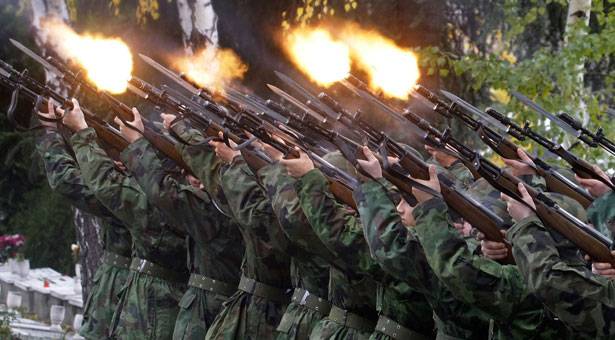The International Court of Justice on Tuesday jointly dismissed allegations of genocide made by Croatia against Serbia and counter-allegations made by Serbia against Croatia regarding the conflict between the two from 1991-1995. The court said that while both countries had committed numerous crimes during the conflict, “destroying a population in whole or in part” - which defines genocide - had not been proven against either country. Instead the actions of both militaries were aimed at “forcibly moving” the other ethnic group. For former residents of the Croatian town of Vukovar, which was all but levelled by the predominantly Serb Yugoslavian army, the decision will not rest easy. Neither will it be celebrated by the majorly Serb region of Karajina, which was indiscriminately bombed in ‘Operation Storm’ by the Croatian military, in an effort to drive out the Serbs. Yet for the most part, the ruling is a fair one, which will end the 16-year long saga of the trial, and help both countries bury the hatchet.
The breakup of Yugoslavia was followed by nearly a decade of conflict which saw outrageous atrocities committed by all sides. Instances of rape, torture and murder on ethnic lines was widespread. It takes time for nations to heal these kinds of scars. Despite the war still being fresh in people’s memories, both countries have already made efforts to forget the past. Politicians on both sides have made advances to bridge the gap and to a large extent they have been successful. The last Croatian government was formed through a coalition with a party representing the Serbian minority and many Serbs hold public offices in Croatia. Croatian businesses are investing in Serbia and cross-border travel is increasing. On the diplomatic level, the Croatian offer to help Serbia join the European Union is a telling indicator of how far the two neighbours have come since the dark days of the conflict. Residual bitterness fuelled by nationalist parties remains and occasional incidents muddy the waters, yet overall the relations are on the mend.
In this atmosphere, a verdict that condemns either side or forces them to pay restitution for damages in the war would have been a setback. The International Criminal Tribunal for the former Yugoslavia (ICTY), made to try individuals from the conflict for war crimes, is currently trying – and convicting – members of the armed forces for acts during the war, but a national conviction would have been a much bigger slight, would have damaged all the hard work done by both countries.
Tuesday, April 16, 2024
Burying The Hatchet

Decision to retaliate against Iran attacks rests with Israel, says Pentagon
1:05 PM | April 16, 2024
Elon Musk proposes small fee for new X users to combat fake accounts
1:01 PM | April 16, 2024
Samsung overtakes Apple as top smartphone maker: Report
12:57 PM | April 16, 2024
Global brands facing challenge from local contenders in Pakistan's FMCG market
10:24 AM | April 16, 2024
Israeli Air Force finalizes preparations for possible attack on Iran
8:21 AM | April 16, 2024
Political Reconciliation
April 16, 2024
Pricing Pressures
April 16, 2024
Western Hypocrisy
April 16, 2024
Policing Reforms
April 15, 2024
Storm Safety
April 15, 2024
Democratic harmony
April 16, 2024
Digital dilemma
April 16, 2024
Classroom crisis
April 16, 2024
Bridging gaps
April 16, 2024
Suicide awareness
April 15, 2024
ePaper - Nawaiwaqt
Advertisement
Nawaiwaqt Group | Copyright © 2024





